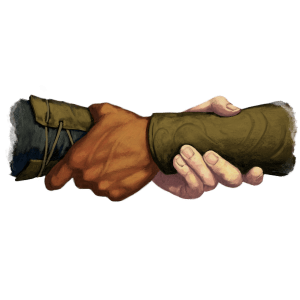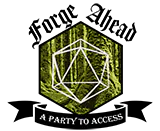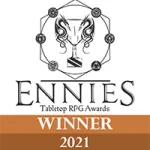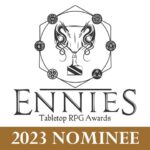Diversity & Allyship
dScryb’s fantasy roleplaying vignettes represent characters as diverse as humanity. To do this, the writers do not confine themselves to one race or a set of racial stereotypes; nor do the writers restrain themselves to binary notions of gender identity, gender expression, sex, and sexual orientation; nor do the writers presume that there are no characters with disabilities and no steps taken by society to make the world more accessible to those with disabilities.
Many scenes, such as mountain ranges and subterranean caverns, do not explicitly feature beings. In others, the beings may not be the focus of the scene, and so their identities may receive minimal exposition. But in scenes that focus on an individual, we strive to provide deeper insight into that character, which may include direct or indirect description of their gender identity, gender expression, sexual orientation, ethnic background, disability, or unique experiences in the world.
2S-LGBTQ+, BIPOC, and disability representation is especially important to dScryb because it makes the fantasy world a more credible, inclusive, and wonderful place to explore. Omitting references to race, disability, gender, sex, and sexual orientation altogether is an option, but not a very good one, as it would not achieve the goal of human equality and representation, and it would also diminish the verisimilitude of the settings.
dScryb’s writing principles are consistent with this policy:
No race shall be universally stereotyped in a negative or positive light: there is capacity for diversity in all characters and races in the realm of heroic fantasy. dScryb believes that culture, not race, shapes groups of people—but also that individual, rational beings are complex and may choose to defy the real or imagined folkways, mores, taboos, or even laws of their society.
When dScryb’s writers conceive of and depict a character who uses gender-neutral pronouns, the narration of the scene is consistent with their use. Similarly, if the character uses a gendered pronoun, then the writers show the same consistency by writing the boxed text accordingly.
Characters may be described by their beauty, attraction, seduction, and other alluring qualities, without describing, specifically, their reproductive organs.
Scene titles avoid reference to sex and gender to reflect the fact that these are not fixed elements of the scene.
The magic items and spells used by characters with disabilities do not attempt to “make them whole” or erase their disability. Rather, our scenes and creations seek to spotlight and celebrate the ways that people with disabilities adapt, both in the real world and in our imagined fantasy worlds.
dScryb does not claim to have a complete understanding of the 2S-LGBTQ+, BIPOC, or disability communities and their needs, or a perfect expression of these values, but our pledge is to always strive towards the goal of inclusivity and to be an ally of these causes.

*dScryb is a proud community partner of Safer Spaces and Forge Ahead: A Party to Access



